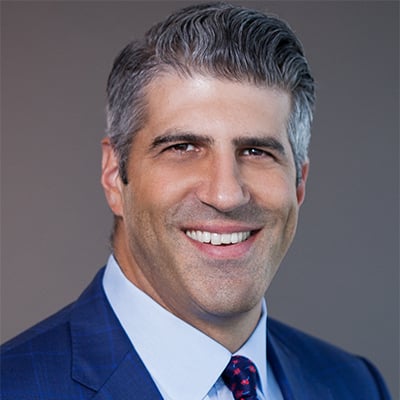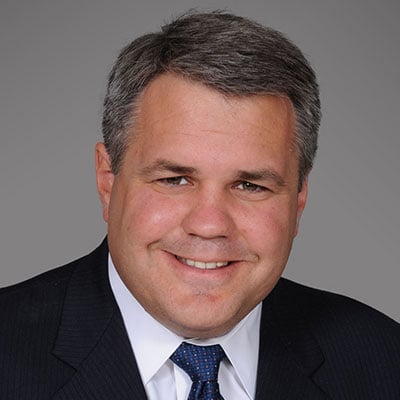Supreme Court Upholds the SEC’s Disgorgement Authority, With Limits
In a much anticipated ruling in Liu v. SEC,1 the U.S. Supreme Court answered the question it left open in its 2017 Kokesh decision and upheld the SEC’s authority to seek disgorgement as “equitable relief” in civil proceedings.2 The decision stressed that disgorgement is an equitable, profits-focused remedy, holding that a disgorgement award that does not exceed a wrongdoer’s net profits and is awarded for victims is equitable relief permissible under the applicable statute. The Court suggested new limits on disgorgement awards, outlining several principles a court should follow in determining whether the award is permissible equitable relief or an impermissible penalty. In reviewing the development of the SEC’s disgorgement remedy over the years, the Court highlighted three instances where courts have awarded disgorgement in ways that “test the bounds” of traditional equity practice: by failing to return disgorged funds to victims, imposing joint-and-several disgorgement liability and declining to deduct legitimate expenses from the award.
Facts of the Case and Holding
In Liu, the SEC alleged that petitioners had fraudulently obtained $27 million from foreign investors in the offer and sale of securities in connection with the EB-5 Immigrant Investor Program. The EB-5 program permits noncitizens to apply for permanent residence in the U.S. by investing in approved commercial enterprises. In the private offering memorandum to prospective investors, Liu pledged that the bulk of any contributions would go toward the construction costs of a cancer-treatment center. In fact, only a fraction of the funds raised were used to purchase a proton-therapy machine for cancer treatment and pay-related administrative expenses. Instead, Liu spent nearly $20 million of investor money on ostensible marketing expenses and salaries while diverting a sizable portion of those funds to personal accounts and to a company under the control of his wife, who was a co-defendant in the case.
The district court ordered petitioners jointly and severally liable for disgorgement of the full amount of money raised in the offering, less the approximately $230,000 remaining in the corporate account. The Ninth Circuit rejected the petitioners’ claim that the disgorgement award failed to account for their business expenses because it believed itself bound by circuit precedent that pre-dated Kokesh. The Court granted certiorari to determine whether the SEC has statutory authority to seek disgorgement in excess of a defendant’s net profits from wrongdoing.
In any action brought by the SEC alleging a securities law violation, the SEC “may seek, and any Federal court may grant, any equitable relief that may be appropriate or necessary for the benefit of investors.” §78u(d)(5). Noting courts’ longstanding equitable power to strip wrongdoers of their ill-gotten gains, the Court held that §78u(d)(5) authorizes the SEC to seek disgorgement of a wrongdoer’s individual net profits to be awarded to victims of the wrongful conduct. The Court observed that disgorgement is limited to a “profit-based measure of unjust enrichment” and set forth a number of principles to avoid transforming this equitable remedy into a punitive sanction.
Key Takeaways
The Court highlighted three instances where an SEC disgorgement award may be impermissible under traditional equity practice:
Failing to return disgorged funds to harmed investors. Relying on §78u(d)(5), which restricts the SEC’s equitable relief to that which “may be appropriate or necessary for the benefit of investors,” the Court found that “the SEC’s equitable, profits-based remedy must do more than simply benefit the public at large by virtue of depriving a wrongdoer of ill-gotten gains.”3 The Court explained that “[t]he equitable nature of the profits remedy generally requires the SEC to return a defendant’s gains to wronged investors for their benefit.”4 The Court questioned the SEC’s practice of paying disgorged funds to the Treasury instead of distributing the funds to injured investors, which often occurs with SEC disgorgement awards.5 The Court, however, did not decide whether traditional equitable principles allow that practice where it is infeasible to distribute disgorged funds to investors.6
Imposing joint-and-several liability. The Court observed that the SEC has sometimes obtained disgorgement from a wrongdoer based on the profits of his affiliates through joint-and-several liability. This, the Court found, was “seemingly at odds with the common-law rule requiring individual liability for wrongful profits.”7 The Court cited, as examples of that tension, requiring a tipper in an insider trading action to disgorge his tippees’ profits, or requiring an investment fund managing director to disgorge the gains earned by the fund as a result of his trades based on inside information.8 In such cases, the disgorgement awards represent punitive sanctions rather than equitable remedies.
Declining to deduct business expenses from the award. Because disgorgement is limited to a wrongdoer’s “net profits,” the Court found that legitimate expenses must be deducted before ordering disgorgement. The Court cited with approval a number of cases and a treatise indicating that courts ordering disgorgement must account for the costs of conducting a business that would have been incurred irrespective of the wrongful conduct.9 However, a court may decline to permit “inequitable deductions” for expenses that are fraudulent or tied to the wrongful conduct, or where the entire profit of a business results from wrongful conduct.10 Ultimately, the district court is responsible for identifying “legitimate” deductible expenses.
The Court remanded Liu to the Ninth Circuit for further evaluation of the disgorgement award sought in line with the equitable principles outlined in the Court’s opinion. That decision on remand, as well as the next several lower court decisions, may provide additional clarity on the scope of the SEC’s disgorgement power under traditional equitable rules.
While some may portray the Liu decision as a victory for the SEC, the decision will likely limit the SEC’s ability to recover disgorgement in future actions. To overcome these challenges, the SEC may seek to impose higher civil penalties, which by statute can be imposed “up to the gross amount of the pecuniary gain” to a defendant as a result of the violation.11 Civil penalties are generally paid to the Treasury and are not required to be distributed to injured investors. The SEC may also seek disgorgement in an administrative proceeding before its in-house tribunal where the SEC has express authority to seek such relief and perhaps the perception of a home field advantage.12 However, the Court’s broad statements on the limits of disgorgement as an equitable, profits-based remedy apply just the same (and in fact apply to any government regulator seeking disgorgement). Whether in settlement negotiations or in litigation, the SEC will be forced going forward to take a more nuanced view of disgorgement and address the fact-based inquiry outlined by the Court.
1. Liu v. SEC, No. 18-1501 591 U.S. (June 22, 2020).↩
2. In Kokesh, the Court held that SEC disgorgement was punitive in nature and therefore subject to the general five-year statute of limitations under 28 U.S.C. §2462. The Court raised, but did not reach, the larger question of whether there was statutory authority in the first instance for the SEC’s disgorgement penalty: “Nothing in this opinion should be interpreted as an opinion on whether courts possess authority to order disgorgement in SEC enforcement proceedings or on whether courts have properly applied disgorgement principles in this context.” Kokesh v. SEC, 137 S. Ct. 1635, 1642 n. 3.↩
3. Liu, 591 U.S. at 16.↩
4. Id. at 15.↩
5. The SEC’s 2019 annual report notes that the total amount awarded in disgorgement over the past five years is more than $14.5 billion, while the total amount distributed to harmed investors over that same period was less than $3.5 billion. https://www.sec.gov/files/enforcement-annual-report-2019.pdf. ↩
6. Liu, 591 U.S. at 16-17.↩
7. Id. at 17.↩
8. See id. at 12 n. 3 (citing SEC v. Clark, 915 F.2d 439 (9th Cir. 1990), SEC v. Brown, 658 F.3d 858 (8th Cir. 2011), and SEC v. Contorinis, 743 F.3d 296 (2d Cir. 2014)). ↩
9. See Liu, 591 U.S. at 18-19 (citing Tilghman v. Proctor, 125 U.S. 136 (1888), Restatement (Third) Sec. 51, comment h at 216).↩
10. See Liu, 591 U.S. at 19.↩
11. See, e.g., 15 U. S. C. §§ 77t(d)(2), 78u(d)(3).↩
12. See 15 U. S. C. §77h–1(e) (“In any cease-and-desist proceeding under subsection (a), the Commission may enter an order requiring accounting and disgorgement”).↩




